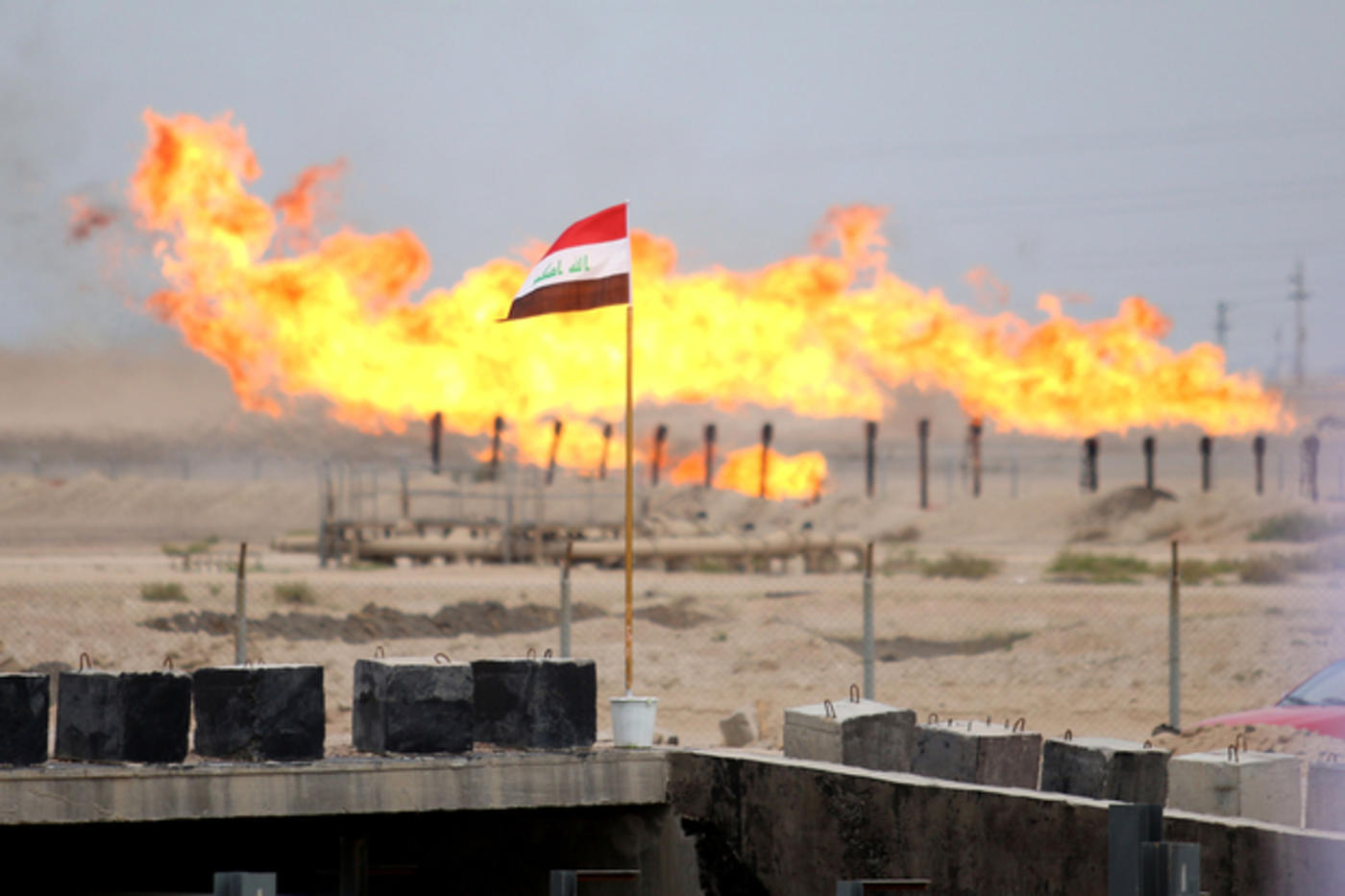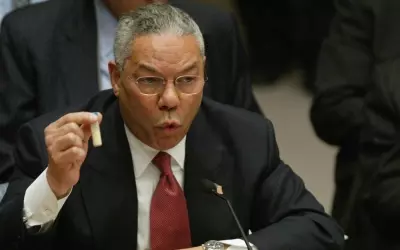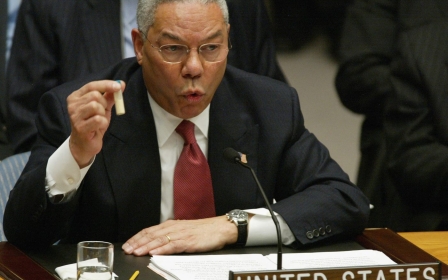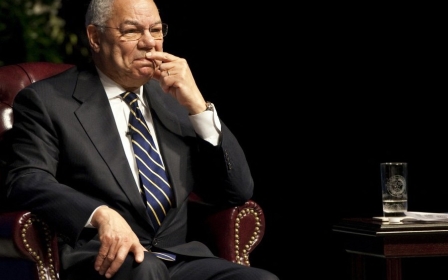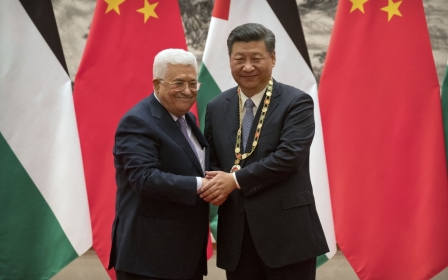Colin Powell: A terrorising legacy of global domination
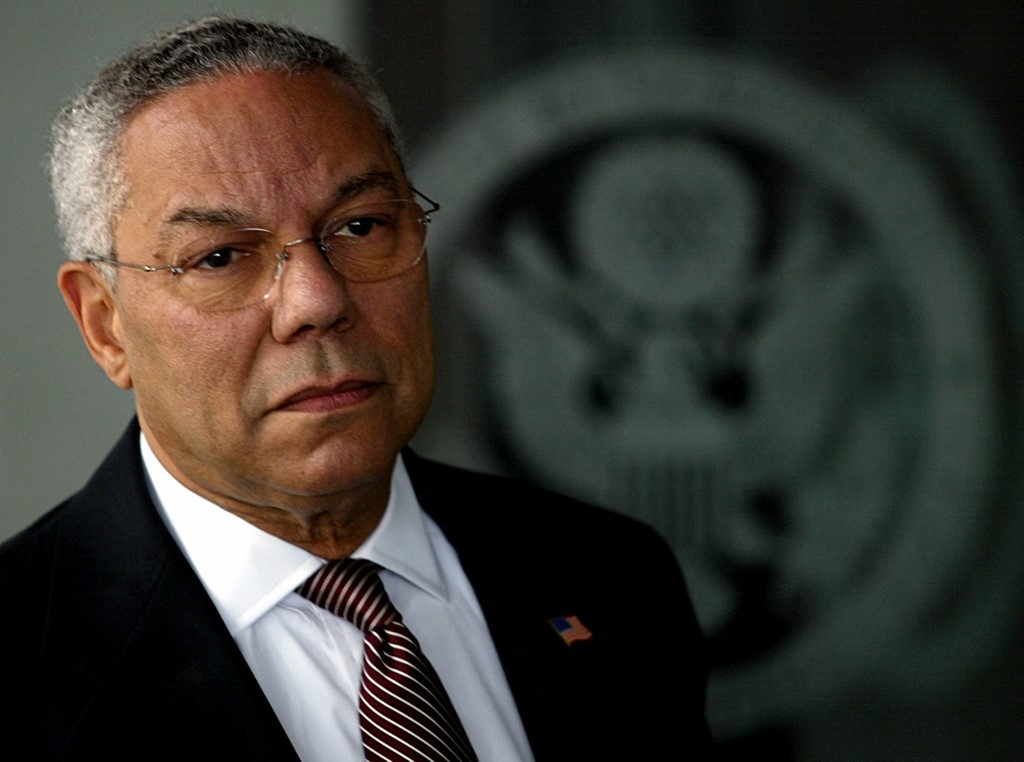
A single name can mean radically opposite things to different people. Consider Colin Powell, who passed away on Monday from Covid-19 complications at the age of 84. As Americans go through the familiar ritual of remembering the legacy of Powell, who served his country in a variety of senior capacities, the rest of the world - and Iraqis in particular - may experience post-traumatic stress when they hear Powell’s name.
Powell was a hero to many of his compatriots, and yet alongside other key figures in the George W Bush administration, he was a solid source of unmitigated catastrophe for Iraqis. The real biography of Powell will be written by Iraqis in Arabic. His name also signals a dramatic twist in the annals of US imperial ideology, when naked military aggression and systemic global intervention in other countries’ national sovereignty became particularly acute in our contemporary history.
Powell's significance was in systematically re-articulating that colonial legacy in renewed imperial terms
A recent study by the Washington-based Quincy Institute for Responsible Statecraft concluded: “Six states have shown themselves the most able to project armed power beyond their borders: Iran, Israel, Qatar, Saudi Arabia, Turkey, and the United Arab Emirates.” The report then emphasised: “Iran is highly interventionist, but not an outlier. The other major powers in the region are often as interventionist as the Islamic Republic - and at times even more so. Indeed, the UAE and Turkey have surpassed Iran in recent years.”
There is, of course, no state on this planet more interventionist than the US itself. For us to avoid a chicken-or-egg paradox of infinite regress between instability and interventionism, we must step back for a moment and place these postcolonial states in their colonial contexts - particularly with regards to US imperial ideologies during the Reagan and both Bush administrations, in which Powell was a key military and diplomatic figure.
Interests of the state
New MEE newsletter: Jerusalem Dispatch
Sign up to get the latest insights and analysis on Israel-Palestine, alongside Turkey Unpacked and other MEE newsletters
Powell was the first Black US secretary of state, who served in multiple capacities in Republican administrations. As both a military man and a top diplomat, he was definitive to US foreign policy over the last half a century, in which US imperial interests around the globe became the dominant ideology of post-World War II global politics.
Powell served in Vietnam, and on his second tour he served with the same unit that carried out the notorious My Lai massacre in 1968, although Powell later stated he arrived after the massacre took place. After complaints from a serving soldier about the massacre, Powell was assigned to investigate it and claimed he was "unable to uncover widespread unnecessary killings, war crimes, or any facts related to My Lai". This act of whitewashing served him well.
Powell’s career advanced along with that of US imperialism, as the use of force on the global stage in the interests of the state became the paramount ideology in American militarism. As the 12th chairman of the Joint Chiefs of Staff, he oversaw the invasion of Panama in 1989 and Operation Desert Storm, the first US Gulf war against Saddam Hussein following his invasion of Kuwait in 1990. It was during his tenure that he developed what became known as the Powell Doctrine, a major component of which was the use of overwhelming military force.
As a former US general, after retiring from the military he brought the military logic of conquest to the diplomatic apparatus of his country. The Iraqis became the primary target of that ideology.
Powell’s infamous speech at the UN in February 2003, in which he falsely argued that Iraq possessed weapons of mass destruction (WMD), not only paved the way for the calamitous US invasion and occupation of Iraq, it articulated the “reason of state” for US military intervention anywhere on the planet to preserve its imperial domination.
To be sure, the US was not exactly isolationist before this speech. But Powell’s speech was a defining moment in the post-Vietnam War era, recasting the US military logic of global domination.
This logic did not remain in Washington, and soon travelled to other locations around the globe, where other states became equally - if not more - interventionist. The assumption that current Middle Eastern states are “interventionist” misses a crucial point in how these states have evolved over the course of their encounters with the enduring legacies of European colonial and American imperial adventurism.
Spheres of influence
The US and its European and regional allies consider Iran to be interventionist, while turning a blind eye to Israel, Saudi Arabia, the UAE and Egypt. Iran certainly meddles in the affairs of Lebanon, for example, or Syria, Palestine, Yemen - and even deeper into Africa and Latin America. But Iran is part of a larger jigsaw puzzle that extends from Russia to Yemen, and from Pakistan to Israel’s garrison state in Palestine.
Turkey is currently in Afghanistan, Syria and Iraq, and its sphere of influence goes deep into the Gulf states and North Africa, even beyond the map of the former Ottoman Empire. Israel is in Palestine and Syria, and has targeted facilities and individuals in Iraq and Iran. Deeply influenced by Powell’s extension of the military logic of conquest into strategic alliances, the US is a perfect model for all these interventionist states.
“Clearly, Saddam Hussein and his regime will stop at nothing until something stops him,” Powell said at the UN in February 2003, capturing the very essence of American power politics, which was using non-existent Iraqi WMD as an excuse to flex US muscles far beyond the invasion and occupation of Iraq.
As an imperial politician, Powell retrieved and resuscitated the older colonial pedigree of European and American politics. When Saddam invaded Kuwait in August 1990, he thought Kuwait belonged to Iraq, and the British had stolen it from Baghdad. There was a method to his madness.
All the current borders of the “Middle East” are the result of the Sykes-Picot Agreement, which divided the Ottoman Empire into French and British spheres of influence. Powell’s significance was in systematically re-articulating that colonial legacy in renewed imperial terms.
“I am saddened by the death of Colin Powell without being tried for his crimes in Iraq,” tweeted Muntadher al-Zaidi, the Iraqi journalist who famously threw his shoes at then-President George W Bush during a 2008 news conference in Baghdad. “But I am sure that the court of God will be waiting for him.”
Powell might indeed have regretted his role in the preparatory stages of the US invasion and destruction of a sovereign nation. But such regrets do not really mean much. Powell was a key figure in recasting US imperial logic towards a renewed commitment to global domination - and all its terrorising consequences will remain his lasting legacy.
The views expressed in this article belong to the author and do not necessarily reflect the editorial policy of Middle East Eye.
Middle East Eye delivers independent and unrivalled coverage and analysis of the Middle East, North Africa and beyond. To learn more about republishing this content and the associated fees, please fill out this form. More about MEE can be found here.



